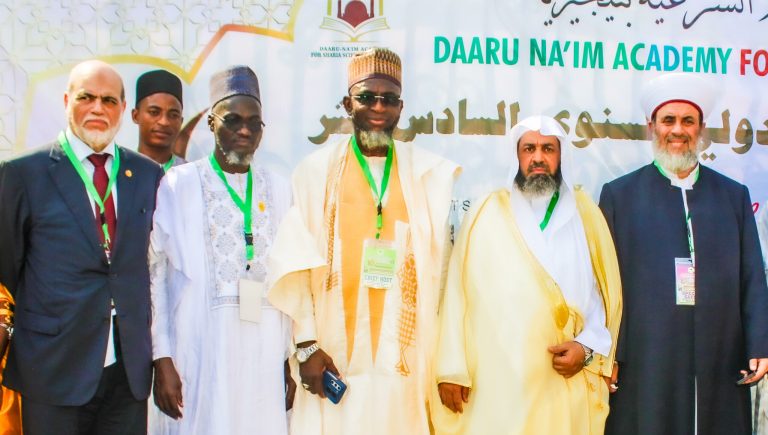By Lukman Olabiyi
Islamic scholars and other stakeholders have called on clerics, particularly those claiming to be Muftis, to deepen their understanding of Sharia before issuing opinions on Islamic matters.
This call comes in response to the growing concern over misleading preachings and messages spreading on social media, which have contributed to rising conflicts.
The Mufti, an Islamic jurist qualified to issue nonbinding opinions (fatwas) on matters of Islamic law (Sharia), plays a critical role in guiding the Muslim community.
However, experts warned that the increasing misinformation online calls for a more cautious and informed approach to issuing fatwas.
The call was made during the 16th Annual Islamic International Conference organised by Daaru Na’im Academy for Sharia Science of Nigeria in Lagos.
The conference, themed “The Jurisprudence of Fatwa and its Relationship with Maqasid-based Fiqh,” brought together scholars from across the globe to address the issue of fatwa misuse.
Sheikh Imran Abdulmajeed Eleha, Conference Supervisor and Director General of Daaru Na’im Academy, highlighted the challenge posed by clerics issuing misleading fatwas and emphasised the need for a coordinated effort to prevent such practices.
He stressed the importance of ensuring that fatwas align with the fundamental objectives of Sharia, as outlined in the Quran and the teachings of the Prophet Muhammad, which also promote peaceful coexistence.
Dr. Awwad bin Sabti Al-Anazi, Undersecretary of the Saudi Arabian Ministry for Islamic Affairs, also addressed the issue, noting that Prophet Muhammad emphasised the importance of knowledge among clerics to avoid passing incorrect information.
He shared that in Saudi Arabia, the government regulates the issuing of fatwas, with a formal body known as The Committee of Crown Scholars overseeing the process.
He also mentioned that the country’s Grand Mufti is responsible for issuing fatwas on matters with broader implications.
Dr. Bilal ElHallak, a U.S. delegation representative, further emphasised that fatwas should not be based on personal opinions. He called for swift action from eminent scholars to address misinterpretations of fatwas and prevent the spread of misinformation.
Prof. Abdulrazzaq Abdulmajeed Alaro from the University of Ilorin’s Islamic Law Department discussed the dangers of allowing anyone to issue fatwas, noting that it has contributed to confusion and misinformation among Muslims. He stressed the importance of ensuring fatwas align with the core principles of Islam.
Delegates at the conference included representatives from Saudi Arabia, the United States, Oman, Algeria, Chad, Cote d’Ivoire, Congo, Benin, Burkina Faso, and Nigeria. The gathering underscored the need for greater care and coordination in issuing fatwas to safeguard the integrity of Islamic teachings and promote peaceful coexistence.
